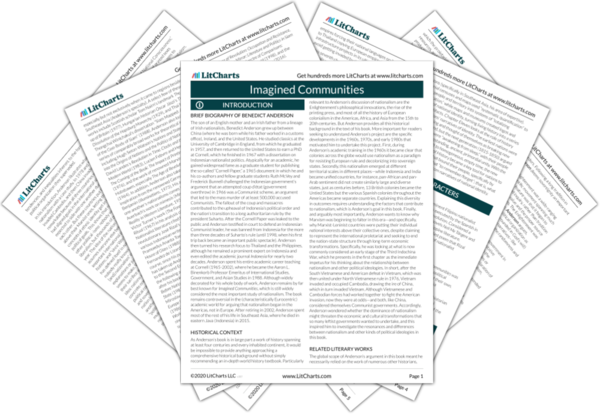Creole Quotes in Imagined Communities
At the same time, we have seen that the very conception of the newspaper implies the refraction of even “world events” into a specific imagined world of vernacular readers; and also how important to that imagined community is an idea of steady, solid simultaneity through time. Such a simultaneity the immense stretch of the Spanish American Empire, and the isolation of its component parts, made difficult to imagine. Mexican creoles might learn months later of developments in Buenos Aires, but it would be through Mexican newspapers, not those of the Rio de la Plata; and the events would appear as “similar to” rather than “part of” events in Mexico.
In this sense, the “failure” of the Spanish-American experience to generate a permanent Spanish-America-wide nationalism reflects both the general level of development of capitalism and technology in the late eighteenth century and the “local” backwardness of Spanish capitalism and technology in relation to the administrative stretch of the empire.

Unlock explanations and citation info for this and every other Imagined Communities quote.
Plus so much more...
Get LitCharts A+What I am proposing is that neither economic interest, Liberalism, nor Enlightenment could, or did, create in themselves the kind, or shape, of imagined community to be defended from these regimes’ depredations; to put it another way, none provided the framework of a new consciousness—the scarcely-seen periphery of its vision—as opposed to centre-field objects of its admiration or disgust. In accomplishing this specific task, pilgrim creole functionaries and provincial creole printmen played the decisive historic role.












